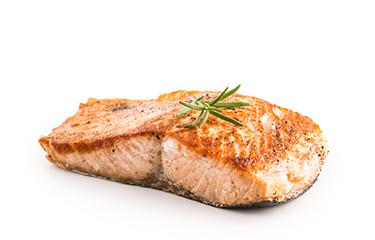Salmon Scotland has announced the results of a scientific study proving a type of vitamin D found in oily fish such as Scottish salmon can supercharge the immune system's ability to fight off harmful bacteria and viruses.
The study, published in Frontiers in Immunology, found that vitamin D from animal-based foods more effective at boosting vitamin D levels in the blood.
“This latest study ... adds to our knowledge that salmon is healthier than ever, showing that the type of vitamin D3 found in salmon can help enable a critical immune system response to bacterial and viral infections,” Salmon Scotland Chief Executive Tavish Scott said.
The study's results go against years of belief, dietitian Carrie Ruxton said.
“For years, we’ve believed that the two main types of vitamin D are equal, but this study throws that into doubt and suggests that vitamin D3 is more effective at preparing our immune system to tackle the threat of viruses and bacteria," she said.
The University of Stirling’s Nutritional Analytical Service conducted a study to assess nutrient Scottish salmon’s nutrient levels by collecting 15 samples to put through laboratory testing. The results of the salmon samples were as high as 71 percent for vitamin D.
“Many people in the U.K. don’t get enough vitamin D from their diets, or from regular, safe exposure to summer sunshine. That’s why around a quarter of Scots are deficient in vitamin D, according to government estimates.” Ruxton said. “A single portion of Scottish salmon provides more than 70 percent of our daily vitamin D recommendation and is also high in protein and other important nutrients.”
The study concluded that salmon contains 4.5 times the daily recommendation for omega-3 fatty acids found in seafood, and contain more than half of human protein needs – in addition to 42 percent of the recommended intake of vitamin E.
Photo courtesy of Marian Weyo/Shutterstock







